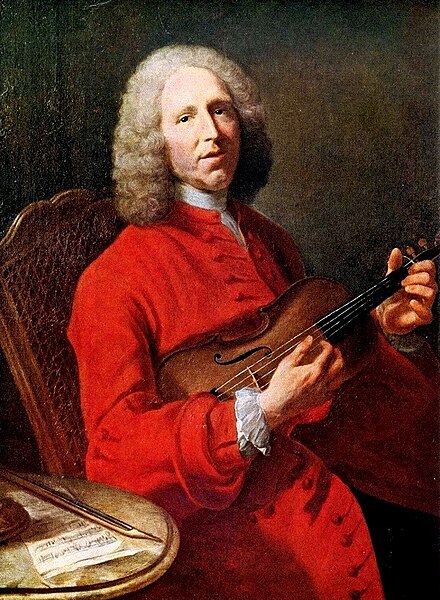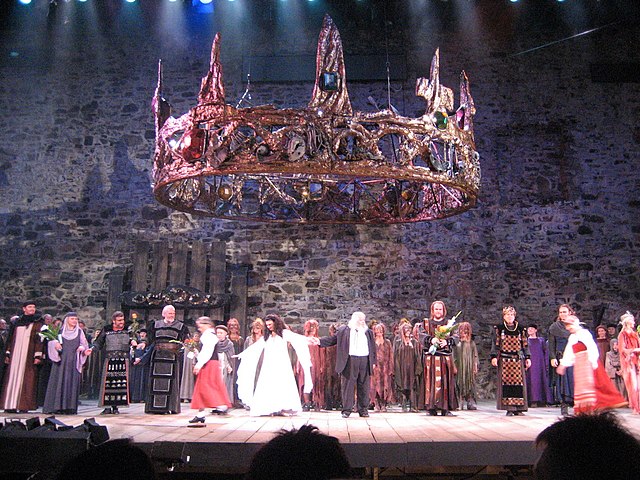French opera is both the art of opera in France and opera in the French language. It is one of Europe's most important operatic traditions, containing works by composers of the stature of Rameau, Berlioz, Gounod, Bizet, Massenet, Debussy, Ravel, Poulenc and Messiaen. Many foreign-born composers have played a part in the French tradition, including Lully, Gluck, Salieri, Cherubini, Spontini, Meyerbeer, Rossini, Donizetti, Verdi and Offenbach.
The Salle Le Peletier, home of the Paris Opera during the middle of the 19th century
Jean-Baptiste Lully, the "Father of French Opera"
A performance of Lully's opera Armide at the Palais-Royal in 1761
Jean-Philippe Rameau, the eighteenth-century innovator
Opera is a form of theatre in which music is a fundamental component and dramatic roles are taken by singers. Such a "work" is typically a collaboration between a composer and a librettist and incorporates a number of the performing arts, such as acting, scenery, costume, and sometimes dance or ballet. The performance is typically given in an opera house, accompanied by an orchestra or smaller musical ensemble, which since the early 19th century has been led by a conductor. Although musical theatre is closely related to opera, the two are considered to be distinct from one another.
Macbeth at the Savonlinna Opera Festival in St. Olaf's Castle, Savonlinna, Finland, in 2007
La Scala of Milan
Palais Garnier of the Paris Opéra
Berlin State Opera








